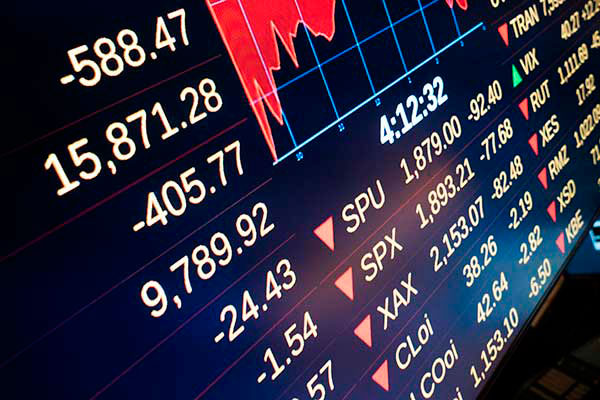
Asian shares slip as bank fears add to global gloom
TOKYO, February 12, 2016
Asian shares slipped on Friday as mounting concerns about the health of European banks further threatened a global economic outlook already under strain from falling oil prices and slowdown in China and other emerging markets.
The prices of yen, gold and liquid government bonds of favoured countries soared as investors rushed to traditional safe-haven assets.
"The markets are clearly starting to price in a sharp slowdown in the world economy and even a recession in the United States," said Tsuyoshi Shimizu, chief strategist at Mizuho Asset Management.
"I do not expect a collapse or major financial crisis like the Lehman crisis but it will take some before market sentiment will improve," he added.
MSCI's index of Asia-Pacific shares outside Japan fell 0.5 per cent. Japan's Nikkei fell 5.3 per cent to a 15-month low as sudden spike in the yen took most investors by surprise.
"It is hard to find a bottom for stocks when the yen is strengthening this much. It is hard to become bullish on the market in the near future," said Masaki Uchida, executive director of equity investment at JPMorgan Asset Management.
"But the valuation of some (Japanese) bank shares is extremely cheap. So for long-term investors, it could be a good level to buy," he added.
Financial shares led losses in Australia and Hong Kong though their declines are still modest compared to peers in Europe and the US.
The strengthening yen touched 110.985 to the dollar on Thursday, rising almost 10 per cent from its six-week low touched on Jan 29, when the Bank of Japan introduced negative interest rates.
The currency last stood at 112.22 yen, hardly showing any reaction after Japanese Finance Minister Taro Aso stepped up his verbal intervention on Friday, saying he would take appropriate action as needed.
MSCI's broadest gauge of stock markets fell 0.6 percent in Asia on Friday, flirting with its lowest level since June 2013.
It has fallen fell more than 20 per cent below its record high last May, confirming global stocks are in a bear market.
On Wall street, the U.S. benchmark S&P 500 fell 1.23 per cent to 1,829.08, its lowest close in almost two years and down 10.5 per cent for the year.
The FTSEurofirst 300 index of top European shares sank 3.7 per cent to its lowest level in 2-1/2 years.
Financial counters led the losses globally as disappointing earnings from Societe Generale added to the gloomy mood brought on by poor results from Deutsche Bank last month.
Banks in Europe ended 6.3 per cent lower, while the S&P financial index dropped three per cent.
Stress in the financial sector is stoking worries that funding conditions for some companies may tighten, even as many of the world's central banks pump in funds through unorthodox measures.
A funding drought could be a death knell for some energy firms that have struggled to make ends meet as oil trades at around a quarter of its value just a few years ago.
In a worrying sign that Europe's debt problems could reappear, the Portuguese 10-year bond yield surged above four per cent for the first time since 2014.
That is a clear departure from last year when investors, hunting for yield, were buying up debt from Portugal and other indebted countries.
In contrast, investors are now flocking to more liquid, and higher-rated bonds.
The 10-year US Treasuries yield fell to as low as 1.530 per cent, a low last seen in August 2012, which is just before the Fed started its third round of quantitative easing. It stood at 1.657 per cent in early Asian trade.
Federal funds rate futures almost completely priced out the chance of a rate hike.
Gold surged to one-year high of $1,262.90 per ounce on Thursday, rising over four percent in its biggest daily percentage gain since September 2013. It last stood at $1,237.5.
US crude futures last traded at $27.44, up 4.7 per cent from late US levels, helped by comments from an Opec energy minister sparking hopes of a coordinated production cut.
International benchmark Brent futures rose 4.3 per cent to $31.35. - Reuters







